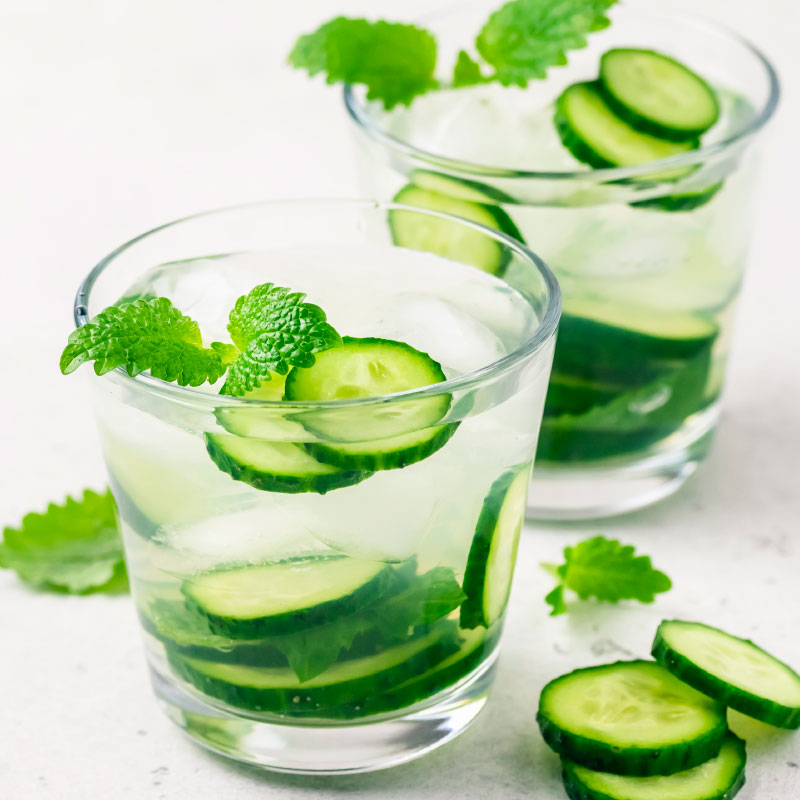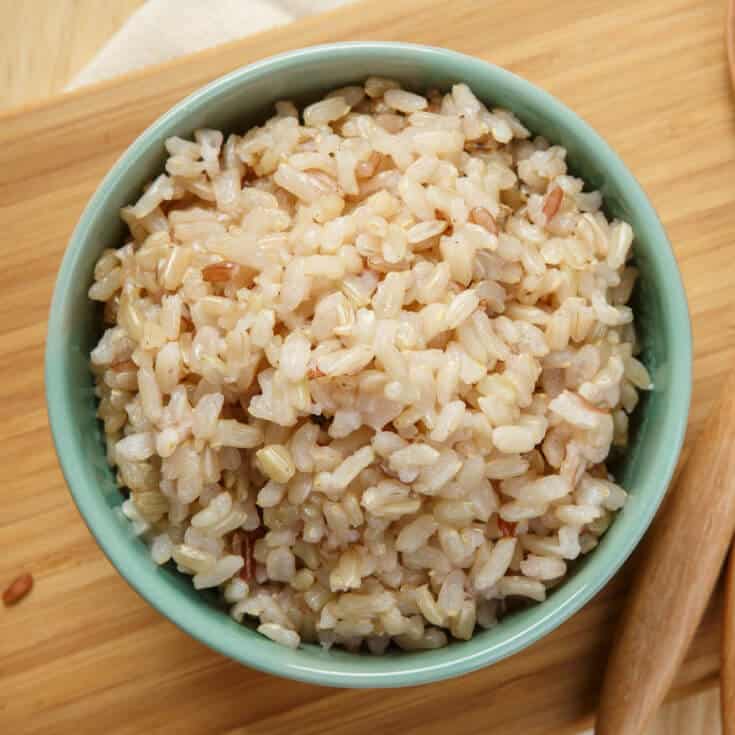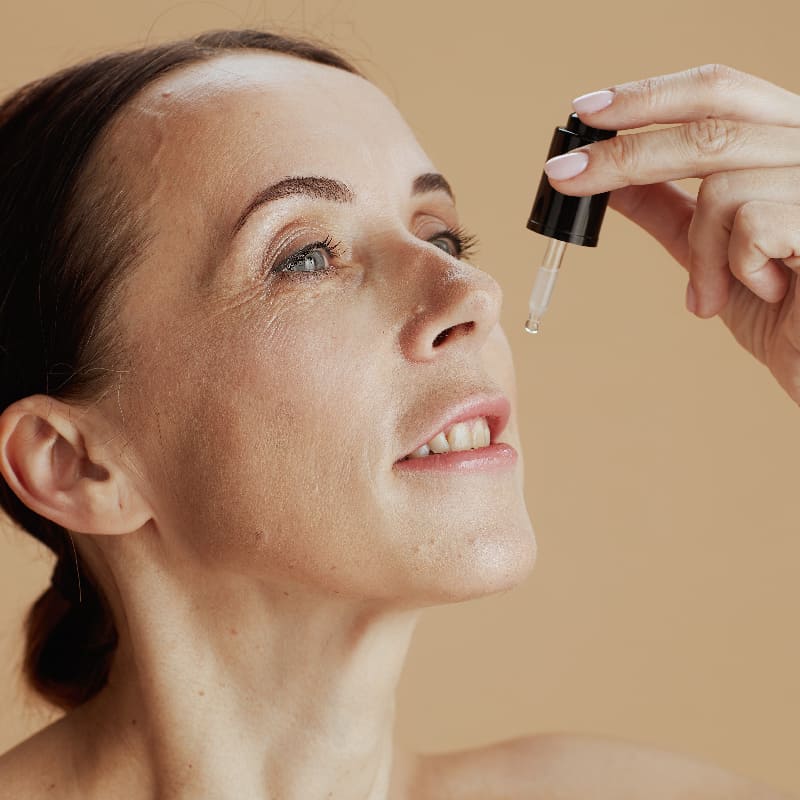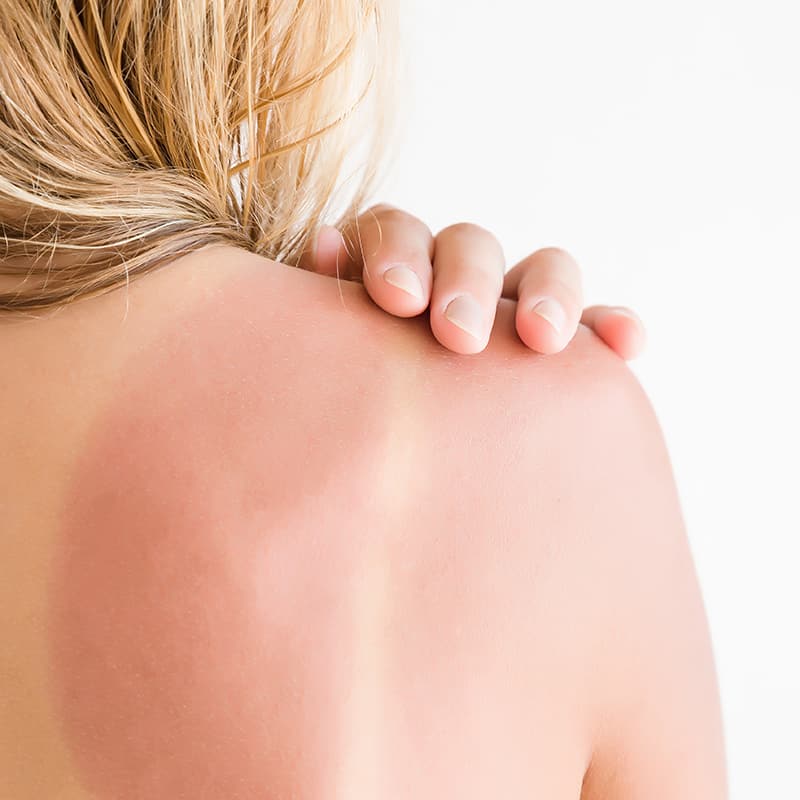This Dr. Axe content is medically reviewed or fact checked to ensure factually accurate information.
With strict editorial sourcing guidelines, we only link to academic research institutions, reputable media sites and, when research is available, medically peer-reviewed studies. Note that the numbers in parentheses (1, 2, etc.) are clickable links to these studies.
The information in our articles is NOT intended to replace a one-on-one relationship with a qualified health care professional and is not intended as medical advice.
This article is based on scientific evidence, written by experts and fact checked by our trained editorial staff. Note that the numbers in parentheses (1, 2, etc.) are clickable links to medically peer-reviewed studies.
Our team includes licensed nutritionists and dietitians, certified health education specialists, as well as certified strength and conditioning specialists, personal trainers and corrective exercise specialists. Our team aims to be not only thorough with its research, but also objective and unbiased.
The information in our articles is NOT intended to replace a one-on-one relationship with a qualified health care professional and is not intended as medical advice.
How to Use Grapeseed Oil for Hair Growth
November 7, 2019
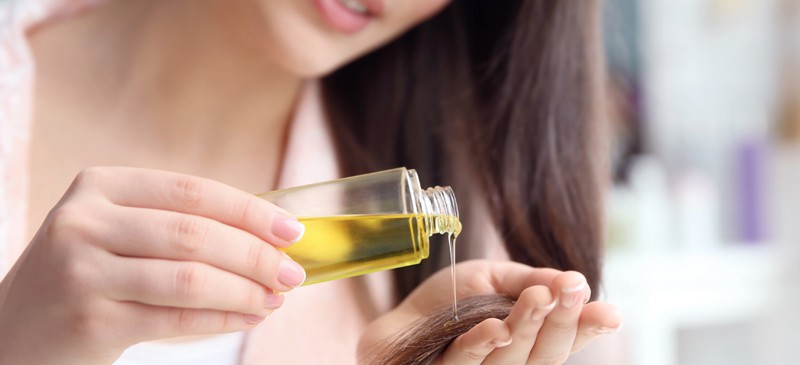
Natural plant oils, including grapeseed oil, are now one of the most popular hair products on the market, thanks to their ability to tackle multiple hair needs.
Curious about using grapeseed oil for your hair due to its supposed hydrating, strengthening and de-frizzing effects? You’ll be happy to know that studies show grapeseed oil — which is an “edible oil” that’s rich in phenolic compounds, fatty acids and vitamin E — has hydrating, anti-inflammatory and antimicrobial properties.
This means it can help treat conditions affecting the scalp that can lead to dandruff and itching, while also making your hair shiny, healthy and smooth.
Benefits
Grapeseed oil is made by pressing grapes under high amounts of pressure, releasing the seeds’ oil that is high in polyunsaturated fats and certain phytonutrients. Not only can you use this oil when cooking, but it’s also a versatile all-natural skincare and haircare product.
Why is grapeseed oil good for hair? Based on both anecdotal evidence and research studies, grapeseed oil benefits for hair can include:
- Hydrating hair
- Adding shine to hair and fighting frizz
- Moisturizing the scalp and helping to reduce dandruff
- Fighting infections/inflammation of the scalp
- Detangling hair
- Protecting hair from UV damage
- Potentially preventing thinning and supporting growth
1. Helps Hydrate and Defrizz Hair
Grapeseed oil is very rich in a type of fatty acid called linoleic acid, which gives it most of its hydrating qualities. Fatty acids found in plant oils can penetrate into hair cuticles, helping to reduce water loss and lock in moisture, while preventing breaking and blocking frizz.
Avocado oil vs grapeseed oil for hair defrizzing — which is better?
Both of these are considered two of the best oils for natural hair, as well as fragile, thin hair that’s been chemically treated or usually falls flat. Many people find that grapeseed oil is lighter in weight and smell than other oils, including avocado oil, olive oil and coconut oil, so it shouldn’t leave your hair feeling weighed down, flat or greasy.
However, some people report that avocado oil makes a good substitute and works just as well, as long as the smell doesn’t bother them.
It’s also non-comedogenic and unlikely to cause clog pores, making it a good choice for people with sensitive skin types who may become irritated when using chemical haircare products.
2. Adds Shine
By applying this oil to your scalp you can naturally help to balance your production of sebum, an oily substance that helps make hair shiny and smooth.
To improve the strength and shine of your hair, you can apply a hair mask made with grapeseed oil to your hair overnight or before showering. Allowing the oil to seep into your hair can defend against breakage and enhance hair’s healthy appearance.
Another easy option is to add several drops to your hands or brush and then distribute through your hair evenly, avoiding your roots if you’d like to prevent greasiness.
3. Non-Irritating and High In Protective Antioxidants
If you have acne-prone skin and easily break out around your hairline due to clogged pores and irritation from hair products, grapeseed oil may be a good option to try instead.
Grapeseed oil can also prevent scalp irritation/inflammation thanks to its many protective constituents, including tocopherol, linolenic acid, resveratrol, quercetin, procyanidins and phytosterols. Vitamin E also contributes to the beneficial effects of grape seed oil for hair and skin, because of its high antioxidant activity.
4. May Help Support Hair Growth?
Does grapeseed oil really stimulate hair growth? It may, based on findings from research studies focused on the effects of plant oils in preventing hair thinning.
According to the Academic Association of Medicine, there’s evidence from several animal studies that it may be able to help stop thinning hair due to its hydrating plus anti-inflammatory and antioxidant qualities, which give it the ability to protect hair fibers.
For example, its high vitamin E content might help protect proteins that strengthen the hair and scalp, while also defending against UV damage, breakage and oxidative stress.
Grapeseed oil may work best to support hair growth when used with other essential and carrier oils that protect the scalp, such as rosemary oil and coconut oil.
Uses
What is the best type of grapeseed oil for hair? The best type for hair, skin and even cooking are types that are cold-pressed, 100 percent pure and organic.
When oils are “cold-pressed” or “expeller-pressed,” they require less use of chemical solvents and are more likely to have higher concentrations of beneficial compounds.
One type that is popular for both hair and skin is pure pompeian grapeseed oil, which is imported from France and considered high quality.
How do you use grapeseed oil as a hair conditioner, mask or serum? Here’s how to use grapeseed oil to detangle hair, add shine, fight frizz and more:
- To hydrate your scalp and hair — Before washing your hair massage a small palm full of oil into hair, twist your hair into a bun and pop on a shower cap, let it soak in, and then wash it off after about 20 minutes using a gentle shampoo. Condition and style as usual. You can also use this oil as a carrier oil to combine with various essential oils that support hair health, such as lavender oil and rosemary oil.
- To help de-frizz your hair — Can you leave grapeseed oil in your hair? Yes, just like you would with other haircare products. Whether your hair has been chemically straightened, or you wear your hair naturally, you can rub several drops of the oil in your hands then apply to your hair evenly, starting at the ends and working up to the roots. When used as a leave in treatment, brushing the oil through your hair help to distribute it and add shine.
- To make a homemade hair mask for shine — Mix 1/4 cup of pure grapeseed oil with 1/2 smashed avocado or 3 egg yolks, then combine and saturate your hair. Leave the mixture in your hair for one hour, then wash it out then use your favorite conditioner.
Risks and Side Effects
Pure grapeseed oil is well-tolerated, usually even by people with sensitive skin, and unlikely to cause negative reactions or side effects. That being said, some people are allergic to grapes and, therefore, grapeseed oil and extract.
If you notice that applying this oil to your hair makes you itchy or causes other signs of an allergy, stop using it right away and switch to olive oil or avocado oil instead.
Final Thoughts
- Grapeseed oil, which is made by pressing grapes to release their seeds’ fatty acids, can be used to help treat various skin and hair conditions, as well as for cooking. It’s considered one of the lightest weight oils, meaning it doesn’t make hair greasy or flat.
- Grapeseed oil uses for hair include: reducing frizz and breakage, adding shine and strength, and helping to stop inflammation and dryness of the scalp. It can be used on chemically-treated or natural hair and is suitable for people with sensitive skin.
- It’s best to use pure, cold-pressed, organic grapeseed oil when cooking or applying it to your hair and skin.
- Can this oil help stimulate hair growth? It’s possible it may, due to its anti-inflammatory effects. However, it’s not a miracle treatment.



